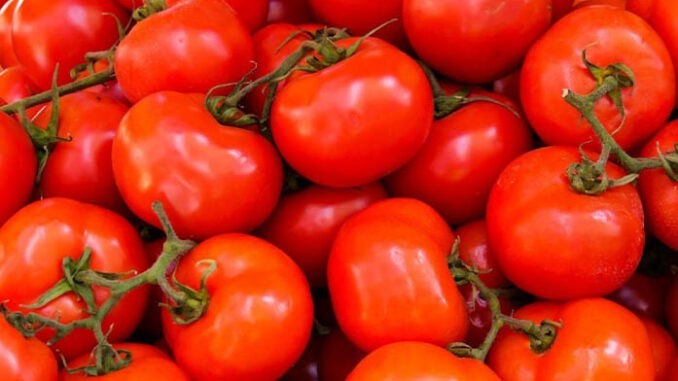
TUCSON – On Friday, the USDA announced agencies would take immediate action to prevent the introduction of tomato brown rugose fruit virus into the United States and protect U.S. tomato and pepper production worth more than $2.3 billion annually.
U.S. Customs and Border Protection will increase inspections on imported tomato and pepper fruit, seed lots and transplants entering at all U.S. ports of entry beginning Friday, November 22, to prevent the introduction of the virus.
The increased inspections come following the Federal Order issued by the U.S Department of Agriculture’s Animal and Plant Health Inspection Service which imposes restrictions on imports of tomato and pepper seed lots and transplants from all countries as well as restrictions on tomato and pepper fruit consignments imported from Mexico, Canada, Israel, and the Netherlands.
The federal government is also prohibiting the importation of all fresh tomato and fresh pepper fruits of any variety (Capsicum spp.) from all countries of origin in passenger baggage. In addition, also beginning Friday, Nov. 22, the aforementioned items will have new entry requirements for commercial shipments from Mexico, Canada, Israel, and the Netherlands.
Tomato brown rugose fruit virus can cause severe fruit loss in tomatoes and peppers. It is easily spread through the use of contaminated tools, hands, and plant-to-plant contact. It was first reported in tomatoes in Israel in 2014. Since then, it has been reported in China, Mexico, Germany (eradicated), Italy, Greece, the United Kingdom, Jordan, Turkey, and the Netherlands. The virus was detected and eradicated from a California tomato greenhouse in 2018.
Per the Federal Order, APHIS will:
- Require all imported tomato and pepper seed lots along with other propagative plant materials be tested and/or certified free of the disease.
- Require all tomato and pepper fruit commercial shipments imported from Mexico, Israel, Canada and the Netherlands to be inspected and certified free of disease symptoms.
In addition, CBP will:
- Increase inspections of commercial consignments at U.S. ports of entry to ensure imported tomato and pepper fruit entering from Mexico, Canada, Israel, and the Netherlands does not show any signs of disease upon arrival.
